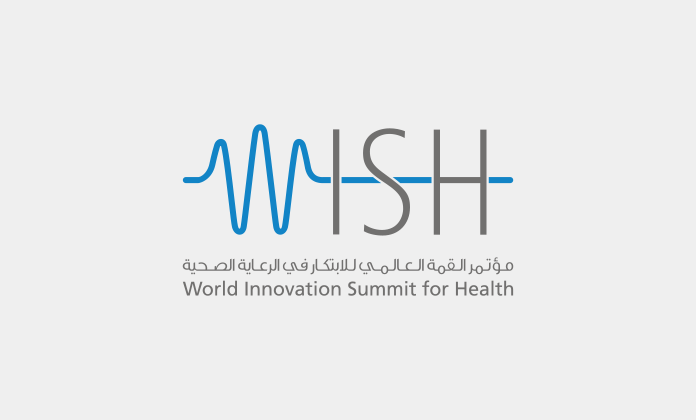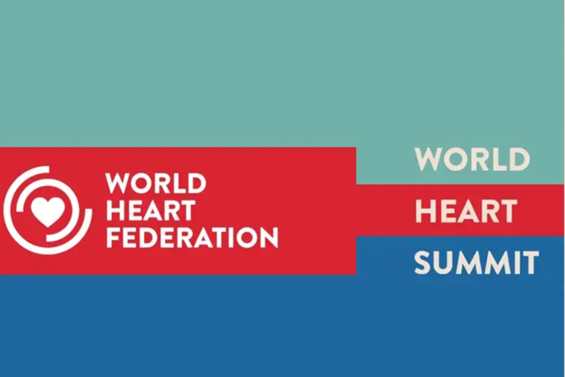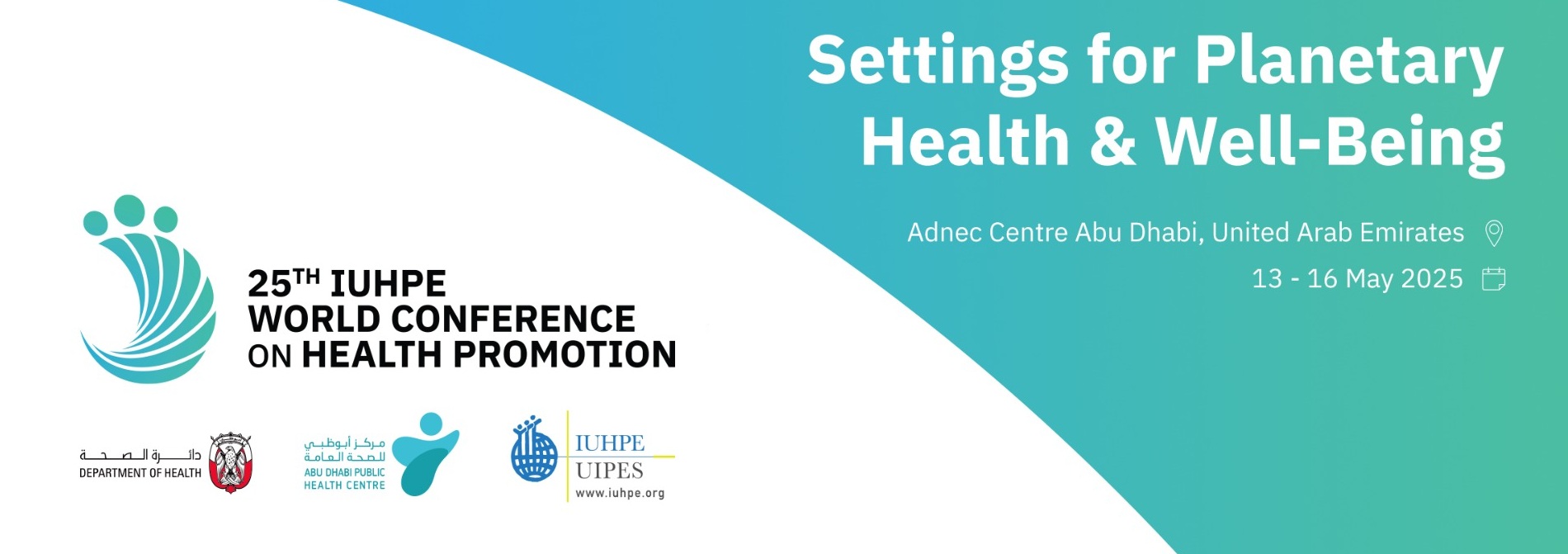Innovation critical to tackling global health challenges say world experts

DOHA, QATAR: World leaders and policy makers gathered in Doha today to discuss innovative solutions to the most pressing global health challenges at the inaugural World Innovation Summit for Health (WISH).
Under the patronage of Her Highness Sheikha Moza bint Nasser, Chairperson of Qatar Foundation for Education, Science and Community Development, WISH brought together close to 1000 global health innovators and policy makers including heads of state, ministers, senior government officials, academics and influential business leaders from 67 countries.
The Summit will showcase a practical range of recent innovations from around the world including technological advances, new business models and design-based solutions covering health matters as diverse as obesity, mental health, accountable care, big data and healthcare, antimicrobial resistance, end of life care, patient engagement and road traffic injuries. There will also be a special panel on Health and Ethics.
Innovations will be on display in state of the art innovation ‘pods’ alongside the individuals who turned these novel ideas into practical solutions.
Delegates at the Summit will hear from distinguished keynote speakers including Simon Stevens, President of Global Health Division, United Health Group; Daw Aung San Suu Kyi, Chairperson of Myanmar’s National League for Democracy; Boris Johnson, Mayor of London; and John Dineen, President and CEO of GE Healthcare.
The Mayor of London Boris Johnson said: “There are many health issues that are of global significance, but every country around the world also faces its own set of challenges. Bringing together key international leaders is a great opportunity to exchange ideas and learn from excellent and innovative work elsewhere.”
The Right Honourable Professor the Lord Darzi of Denham, Executive Chair of WISH, said: “Healthcare is facing some of its greatest ever challenges and if we are to succeed in tackling them, all nations must find new and innovative ways to treat and prevent illness. We want to inspire people to take up the best ideas and implement them in countries all over the world, closing the gap between what we know and what we do. And by bringing together people with the power to make a real difference, our ambition is to help improve the health of people everywhere.“
The second day of the Summit will include the launch of the Global Innovation Diffusion report, a ground-breaking initiative that investigates and compares how eight countries’ healthcare systems foster, implement and share medical innovation. The innovative research looks at how Qatar, India, Brazil, the UK, US, Australia, Spain and South Africa diffuse the best new ideas to improve healthcare for their populations.
WISH supports the aims and ambitions of Qatar Foundation and reinforces Qatar’s role as an emerging center for medical innovation. Qatar has been at the forefront of healthcare reform in the region with its introduction of a visionary national health strategy. As part of its mission, Qatar Foundation has launched a number of initiatives in healthcare – from scientific research in medicine to maternal health and clinical care.
Engineer Saad Al Muhannadi, President of Qatar Foundation said: “Qatar Foundation embodies Qatar’s National Vision 2030 and supports initiatives that create a healthy and strong society. Fostering healthcare innovation in Qatar and abroad is an integral part of our drive at Qatar Foundation and it gives me great pleasure to welcome our distinguished guests from diverse corners to WISH and Qatar.”
ENDS
Notes to Editors:
- WISH benefits from Diamond Sponsorship by Sidra Medical and Research Center, Qatar National Bank and Qatar Petroleum.
- The eight reports are:
Accountable care
Healthcare costs are rising around the world faster than countries’ ability to meet them. The challenge is how to slow the growth in expenditure while improving the quality of care.
A fundamental shift in the way we provide and pay for care, in order to encourage innovation, improve efficiency and save costs is needed. The commissioners of health care should switch focus from the provision of services – how many operations a hospital performs – to the delivery of outcomes – how many patients get better, with hospitals and other providers held accountable for their performance.
Singapore has since 2008 pioneered a home care program for the terminally ill and a “community medical home” for those with chronic conditions which has cut readmissions by 40 per cent, saved $11 million and halved A&E attendances. Outcomes have improved while the quantity of “treatment” delivered has reduced.
At Ryhov hospital in Sweden 60 per cent of dialysis patients now manage their dialysis at home, freeing up beds and doctors’ time, with better outcomes and fewer side effects.
The expert panel says governments need to start to pay for outcomes and to assist collaboration between organizations, which may mean limiting choice and competition.
Big Data in Health
Translating advances in medical science into new treatments has proved difficult because of the huge variability of human behavior.
By monitoring the stream of data generated by the electronic devices on which we rely – from mobile phones to loyalty cards – we can gain a far more complete picture than has ever been available before.
In the US researchers at the Massachusetts Institute of Technology have created a map of their own campus showing where the risk of contracting infections is highest, by tracing the mobile phones of those who disclosed in an interview that they had a cold or flu.
In Lahore, Pakistan, experts tackled a serious outbreak of dengue fever by plotting areas of the city where infections were highest and using mobile phones to record the location of stagnant pools of water which were then removed or stocked with fish (to eat the mosquito larvae).
But “reality mining” – tracking the “digital breadcrumbs” left by our electronic devices, collectively known as “Big Data”, generates alarm because it suggests intrusion into our private lives on a grand scale.
The expert panel calls for an international charter to promote the sharing of data for the benefit of global health, combined with updated privacy and data ownership policies.
Mental Health
Mental illness affects hundreds of millions of people around the world – yet is also one of the most neglected of all global health concerns. Less than 2 per cent of the health budget is spent on treatment and prevention of mental health problems in most low and middle income countries.
One of the biggest challenges is how to meet the demand for mental health care with limited resources. In the UK 1.7 million patients have been treated by specially trained psychological therapists, to supplement the service provided by doctors. Two thirds improved, and the scheme paid for itself by cutting the number unable to work and receiving sick pay.
In Chile a scheme to improve diagnosis and treatment of depression through collaboration between psychiatrists and primary care doctors has improved recovery rates from 30 to 70 per cent and proved cost-effective.In some places new technology is being harnessed to extend the reach of the treating psychiatrist. An internet based Cognitive Behavior Therapy scheme in Australia used by more than 7,000 patients has a 30 per cent recovery rate and is ten times cheaper than face to face treatment.
The expert panel calls for the building of a diverse mental health workforce, using new technology to increase access, and to identify and treat problems early.
End of Life
Death and dying are taboo topics in many countries. Each year over 100 million terminally ill patients need palliative care yet fewer than 8 per cent receive it. This unnecessary suffering in the last year of life amounts to a global tragedy.
The expert panel says countries should produce a national strategy for end of life care, make palliative care part of healthcare and end restrictions on opioid drugs for the terminally ill.
In Columbia, a national policy introduced in 2007 following a workshop in which pain care specialists identified problems, led to a tripling in sales of morphine-like drugs in three years.
In Ukraine, around 500,000 people need palliative care each year yet there are just nine hospices with 650 places. In May 2013, the government relaxed laws which required four doctors to sign prescriptions for strong medicines allowing patients to keep a 15 day supply of opioids at home.
In Kerala, India, a network of volunteers has been built which delivers care to people in their own homes. The state is regarded as a ‘beacon of hope” providing two thirds of all palliative services in India despite having just 3 per cent of its population.
The expert panel says that where access to western medicine is limited the help of traditional healers should be sought.
Antimicrobial Resistance
We are losing the fight against infectious diseases as bacteria become resistant to modern medicine. Unless steps are taken to combat the growth of resistance in a few years common surgery such as hip replacements may be deemed too dangerous to undertake.
“What I learnt scared me – not just as a doctor but as a mother, a wife and a friend”, said England’s Chief Medical Officer and panel chair, Professor Dame Sally Davies.
More than 500,000 people die from resistant infections globally every year. The panel calls for stronger regulation to limit the use of antibiotics in humans and animals, incentives for the development of new drugs, and international collaboration to monitor the spread of resistant organisms to reduce the “alarming number” of deaths worldwide.
More than 70 per cent of antibiotics produced are for animals, three quarters of which are used as growth promoters. This non-therapeutic use should be banned, the panel says. Vaccination can help – salmon vaccination in Norway resulted in a 98 per cent reduction in the use of antibiotics.
The number of pharmaceutical companies developing antibiotics has dropped dramatically from 18 in 1990 to five today because of poor returns. Higher prices, longer patents and guaranteed income for innovators must be explored, the panel says.
Obesity
There is a global pandemic of obesity which is causing three million deaths a year. It is a major factor in heart disease, stroke, Type 2 diabetes and some forms of cancer.
Between 1990 and 2020, deaths from these non-communicable diseases are projected to increase by 77 per cent, threatening to reverse 50 years of gains in life expectancy and place enormous strain on national health systems.
Reducing calorie intake and increasing activity extends beyond health to the education, retail, farming and finance sectors. In France a 12 year study of two towns, one of which engaged schools, parents, the community and the media in tackling obesity saw significantly lower rates than in the control town. The initiative has since been rolled out to 275 European towns and cities.
A social enterprise program operating in the Middle East, Australia, New Zealand, the US, Canada and the UK has achieved significant reductions in waist measurements. The Mind Exercise Nutrition Do It program uses trained staff to deliver nine weeks of lessons on active living and healthy eating to families seeking to change their children’s eating habits.
The panel says ministers of health must publicly champion the fight against obesity, set targets for changes in diet and activity, establish food labeling standards and set nutritional guidelines.
Road Traffic Injury
Over a million people die in road accidents each year and millions more are injured. Among the worst affected countries are the rapidly developing economies of the Middle East – in Qatar road accident deaths outstrip those from cancer or heart disease.
Although the value of seatbelts has been recognized for 40 years, only 69 per cent of the world’s population is fully protected by a seatbelt law.
Among the innovations discussed are alcohol detectors in cars, foam head protective devices in child seats, a ban on texting while driving and low speed zones in residential areas.
In Victoria, Australia, an Arrive-Alive strategy launched in 2001, with greater police involvement and extra speed cameras, cut deaths by 16 per cent in the next three years and by 40 per cent in Melbourne’s low speed zones.
In Sao Jose dos Campos, Brazil, a partnership between the community, government and local businesses to implement road safety improvements, raise public awareness and increase enforcement led to a 41 per cent decline in fatal accidents between 2010 and 2011 despite a 9 per cent growth in the number of vehicles.
All governments should adopt WHO standards on road safety, legislate to enforce them and communicate the risks to their populations, the panel says.
Patient Engagement
Health ministers face a dizzying array of possibilities for improving the health of their nations. The most important experts however – ordinary people managing their own health – are typically left out of the equation.
With the growth of electronic communication, the internet and social media, patients are increasingly making their voice heard. In mental health, end of life care and antimicrobial resistance they are a powerful tool for improving quality and reducing costs.
An 11 country survey in Australia, Europe and North America in 2011 found patients engaged in their care reported higher quality, fewer errors and more positive views of the health system.
The Danish Society of Patient safety ran a “Just Ask” campaign to overcome “white coat” silence and encourage patients to ask questions about their care. A study showed 86 per cent of those targeted had an improved dialogue with medical staff.
The WHO is developing a checklist for mothers to use during the high risk first 7 days of their baby’s life to help them decide when to seek urgent medical care. The panel calls for health care organizations to appoint patient and family advisors to help improve quality and set policy and will say healthcare staff should routinely include patients and their families in decision making.
- The forum reports can be found at http://www.wish-qatar.org/reports/2013-reports
- For further media enquiries please contact media@wish-qatar.org
- About WISH:
The inaugural World Innovation Summit for Health (WISH), due to be held in Doha, Qatar on 10-11 December 2013, will bring together heads of state, ministers, senior government officials, academics and thinkers, as well as the most influential business leaders, to stimulate implementation of practical, sustainable and innovative solutions to tackle global health challenges.
The purpose of WISH is to encourage collaboration and innovation in health policy, health systems and health care delivery, in order to close the gap between what we know and what we do in the fields of healthcare and medicine.
WISH is aligned with the mission and vision of Qatar Foundation and Qatar National Vision 2030, and serves to highlight Qatar’s growing role as an emerging center for healthcare innovation. As the nation stands at the forefront of healthcare reform, Qatar Foundation has embarked upon several promising research-health initiatives, including partnerships with Weill-Cornell Medical College, Biobank Qatar, Qatar Robotic Surgery Centre Qatar Cardiovascular Research Centre, Virgin Health Bank, and Sidra Medical and Research Center.
For more information on WISH, please visit: http://www.wish-qatar.org/
- About Qatar Foundation
Qatar Foundation for Education, Science and Community Development is a private, non-profit organisation that is supporting Qatar on its journey from carbon economy to knowledge economy by unlocking human potential for the benefit of not only Qatar, but the world. Founded in 1995 by His Highness Sheikh Hamad Bin Khalifa Al Thani, Amir of Qatar, QF is chaired by Her Highness Sheikha Moza bint Nasser.
QF carries out its mission through three strategic pillars: education, science and research, and community development. QF’s education pillar brings world-class universities to Qatar to help create an education sector in which young people can develop the attitudes and skills required for a knowledge economy. Meanwhile, its science and research pillar builds Qatar’s innovation and technology capacity by developing and commercialising solutions through key sciences. Finally, its community development pillar helps foster a progressive society while also enhancing cultural life, protecting Qatar’s heritage and addressing immediate social needs in the community.
For a complete list of QF’s initiatives and projects, visit http://www.qf.org.qa
For more information about Qatar Foundation please contact our press office at: pressoffice@qf.org.qa
- About Sidra Medical and Research Center
Sidra Medical and Research Center, currently under construction in Doha, Qatar, will be a groundbreaking hospital, research and education institution, focusing on the health and wellbeing of women and children regionally and globally. Sidra will be a fully digital facility, incorporating the most advanced information technology applications in clinical, research and business functions. Sidra will initially have 400 beds with infrastructure to enable expansion to 550 beds in a subsequent phase.
Sidra represents the vision of Her Highness Sheikha Moza bint Nasser who serves as its Chairperson. The high-tech facility will not only provide world-class patient care but will also help build Qatar’s scientific expertise and resources. Sidra will be funded by a US$7.9 billion endowment from Qatar Foundation, one of the largest endowments of its kind in the world.
Sidra is part of a dynamic research and education environment in Qatar that includes leading international institutions, such as Sidra’s academic partner Weill Cornell Medical College in Qatar. Through strong partnerships with leading institutions around the world, Sidra is creating an intellectual ecosystem to help advance scientific discovery through investment in medical research.
Sidra will have a unique working structure with inter-professional collaboration at the heart, providing the best holistic care for patients and an unparalleled learning environment for its medical professionals. Sidra will combine the best in design, technology, operations and practices from medical centers around the world – to offer its employees an environment that is at once familiar and extraordinary.
For further information, please contact:
Doha, Qatar (EST +7 hours)
Ms. Noor Al Kobaisi
Direct: +974-4404-2383
nalkobaisi@sidra.org
www.sidra.org
More أخبار

ويش يقود جهود التحرك لمكافحة أمراض القلب والأوعية الدموية خلال القمة العالمية للقلب 2025
اقرأ أكثر...
الشفاء بعد الحرب: الرئيس التنفيذي لمؤتمر ويش يفتتح جلسة أمراض القلب في القمة العالمية للقلب
اقرأ أكثر...
من الحوار إلى التنفيذ: “ويش” يلهم الابتكار في الصحة العالمية خلال مؤتمر الاتحاد الدولي لتعزيز الصحة والتثقيف الصحي 2025
اقرأ أكثر...